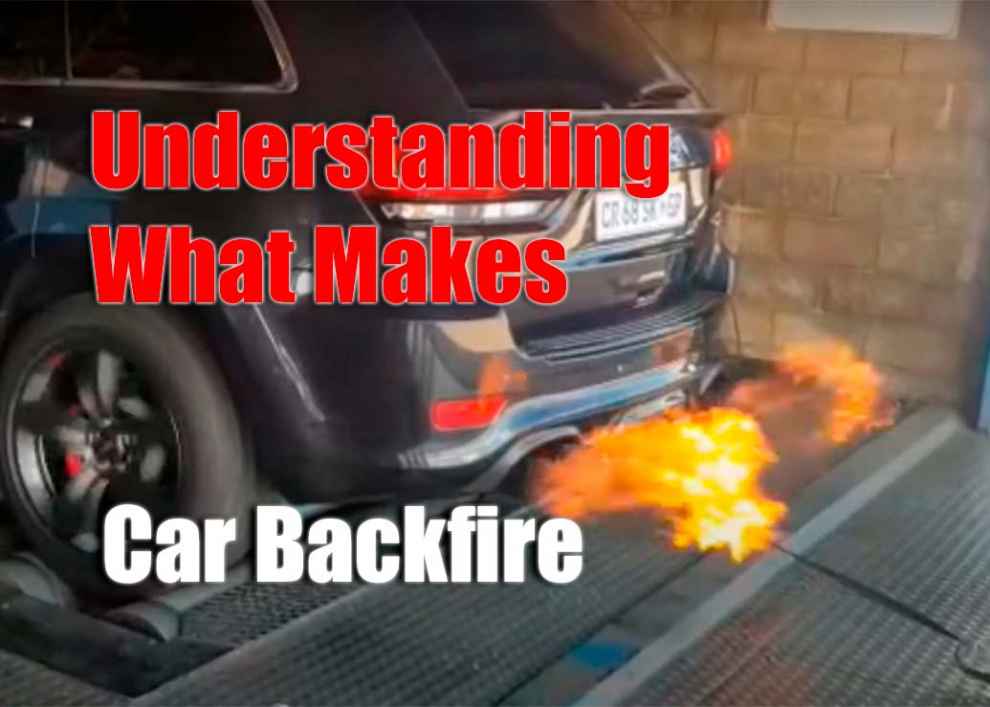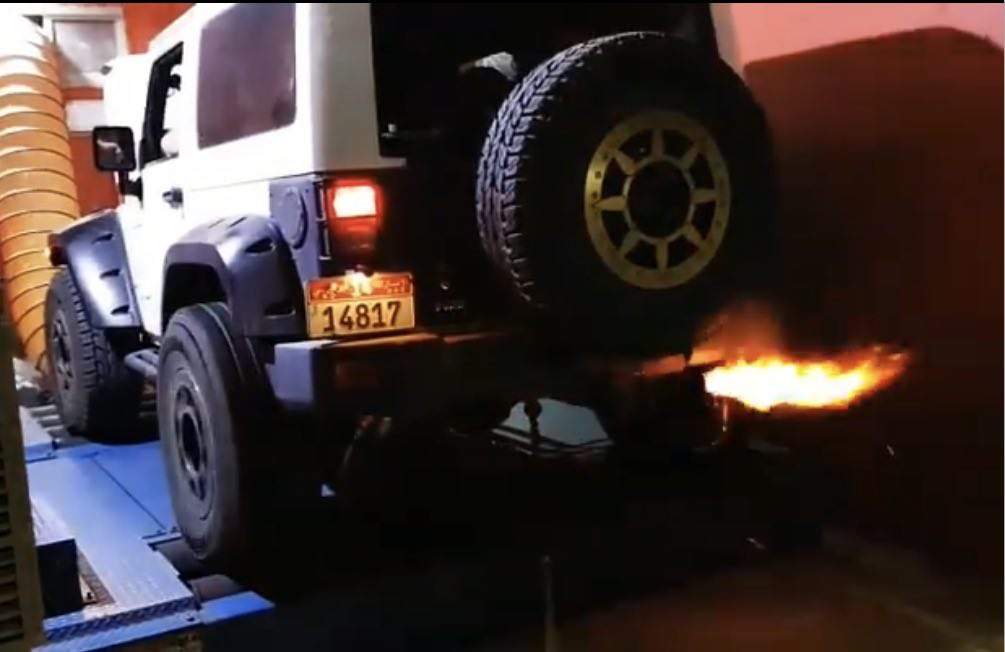What is it about cars that can make them backfire? Vehicles are complex devices requiring a range of components to operate accurately. Unfortunately, the result is usually an unexpected backfire when something goes wrong. The causes of car backfires vary greatly depending on the vehicle and its condition, but most often, these loud pops are related to an issue with the fuel or ignition system. In this article, we’ll look at what makes a car backfire and some potential solutions for fixing the problem. We will also talk about preventive measures that can decrease the chances of backfiring in your car in the future. By learning more about this issue and how to address it, you can ensure your vehicle runs safely and smoothly for many years.
What Makes Car Backfire in Jeeps
There are several potential causes of car backfiring in Jeeps, and the exact cause will depend on your vehicle’s age and condition. Some of the most common reasons for Jeep backfires include:
-
Vacuum Leaks: A vacuum leak is an opening or hole that allows air from outside to enter the engine, which can cause it to run inefficiently. If your Jeep has a vacuum leak, it can lead to a backfire.
-
Fuel Injectors: Faulty fuel injectors can also lead to a backfire due to air-fuel mixture imbalances. When fuel injectors become clogged or worn out, they may not be able to deliver enough fuel for a smooth combustion process, resulting in excess air entering the engine and causing a backfire. Read here how to clean fuel injectors.
-
Ignition System Problems: An issue with your ignition system can also result in a car backfiring. Faulty spark plugs or wires may be causing an incomplete combustion process that leads to unburned fuel being ignited by heat from the exhaust system and producing loud pops when it does so.
-
Poor Maintenance: Finally, poor maintenance can also lead to backfiring. If your Jeep’s spark plugs have not been replaced regularly as recommended by the manufacturer, it can result in incomplete combustion and a corresponding backfire.
-
Engine Overheating: An excessively heated engine can cause premature ignition of the air-fuel mixture, leading to backfiring. It is particularly common in high-performance engines or under heavy load.
Common Symptoms of Jeep Backfires
Experiencing backfires in a Jeep can manifest through several noticeable symptoms, indicating potential underlying issues within the vehicle’s engine and related systems. One of the most prominent signs is the distinct popping or gunshot-like noise emitted from the exhaust or intake manifold during deceleration or revving of the engine. Additionally, abrupt engine jerking or hesitation, particularly when accelerating or transitioning between gears, can signify irregular combustion, leading to backfiring. In some cases, a sudden loss of engine power or a decrease in overall performance might become apparent. Furthermore, the presence of unusual exhaust odors, such as a strong smell of unburned fuel, can point towards uncombusted fuel entering the exhaust system.
Diagnosing the Problem
Diagnosing Jeep backfires necessitates a systematic approach. Inspect the ignition system for spark plug, wire, or coil issues that cause misfires. Check the fuel delivery system for a balanced air-fuel mixture and address vacuum leaks or damaged intake gaskets in the intake system. Scrutinize the exhaust system for catalytic converter or muffler obstructions. Evaluate the EGR system’s functionality and compatibility with aftermarket modifications. Consider engine conditions like temperature and load. Utilize diagnostic tools and professional expertise for effective solutions, ensuring a backfire-free driving experience.
Fixing Jeep Backfires
Once the underlying cause of Jeep backfires has been identified, the next step is to take action to remedy the issue. Generally, repairing an ignition system involves replacing faulty spark plugs, wires, and coils. In certain situations, there might also be a need for re-gapping or substituting spark plugs. Vacuum leaks can be sealed using special sealants available at automotive stores, and replacing damaged intake gaskets might also be required. Fuel injector cleaning or replacement is often necessary for efficient fuel delivery and avoiding backfiring due to air-fuel mixture imbalances. Ensuring all aftermarket modifications are correctly installed and compatible with your vehicle’s engine is also essential. Additionally, regular maintenance checks by qualified mechanics can help reduce the chances of your car backfiring in the future, as they will be able to identify any potential issues before they become more serious problems.
Conclusion
Backfiring in cars can be a dangerous and annoying problem, but fortunately, with the right knowledge and tools, it is possible to address the issue quickly and easily. By understanding the causes of car backfiring in Jeeps, you can take preventative measures to reduce your chances of encountering this problem. Additionally, knowing what symptoms to look for can help you figure out what is causing your car to backfire so you can take steps to fix the issue. Finally, if all else fails, don’t hesitate to consult an experienced mechanic who can diagnose and repair the problem swiftly.

 Fuel Injectors: Faulty fuel injectors can also lead to a backfire due to air-fuel mixture imbalances. When fuel injectors become clogged or worn out, they may not be able to deliver enough fuel for a smooth combustion process, resulting in excess air entering the engine and causing a backfire. Read here
Fuel Injectors: Faulty fuel injectors can also lead to a backfire due to air-fuel mixture imbalances. When fuel injectors become clogged or worn out, they may not be able to deliver enough fuel for a smooth combustion process, resulting in excess air entering the engine and causing a backfire. Read here
Add Comment